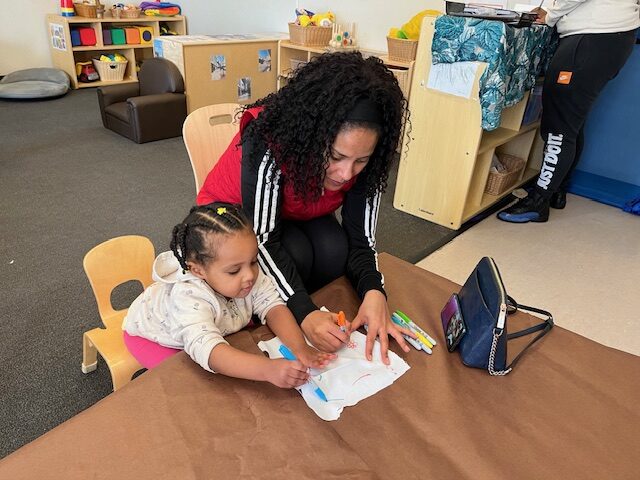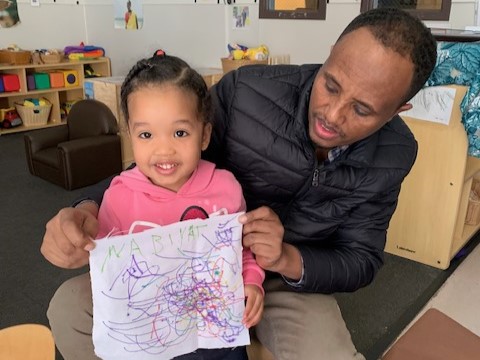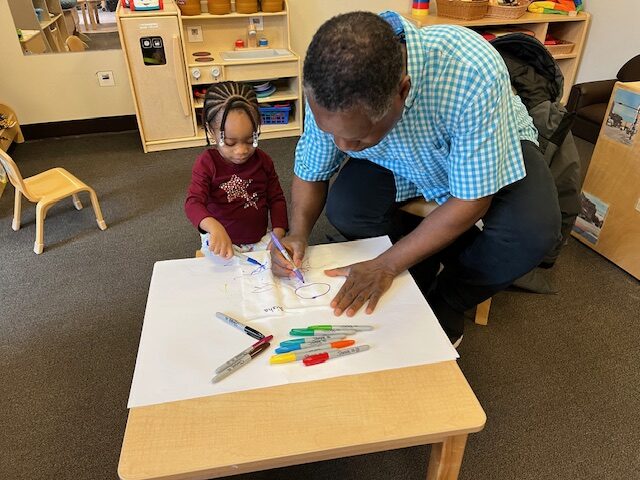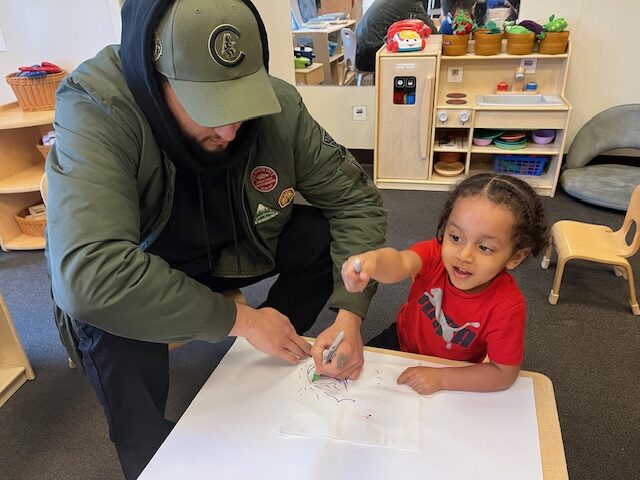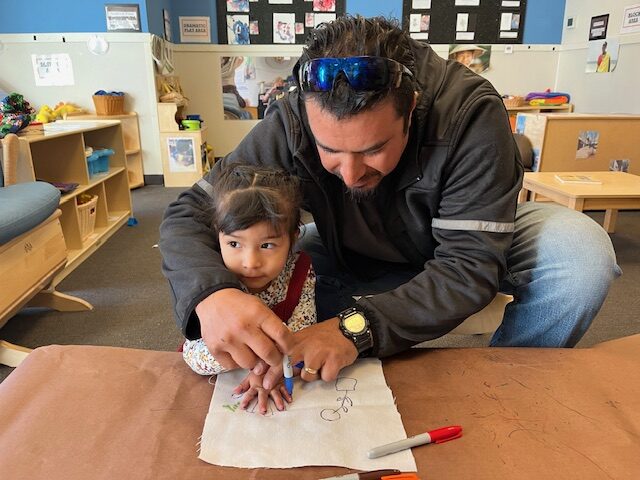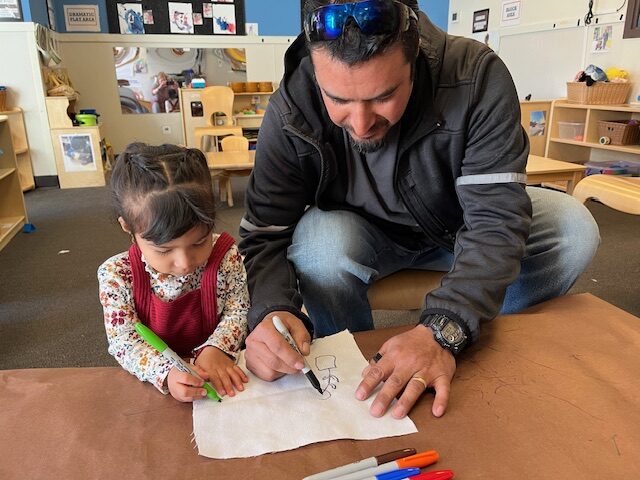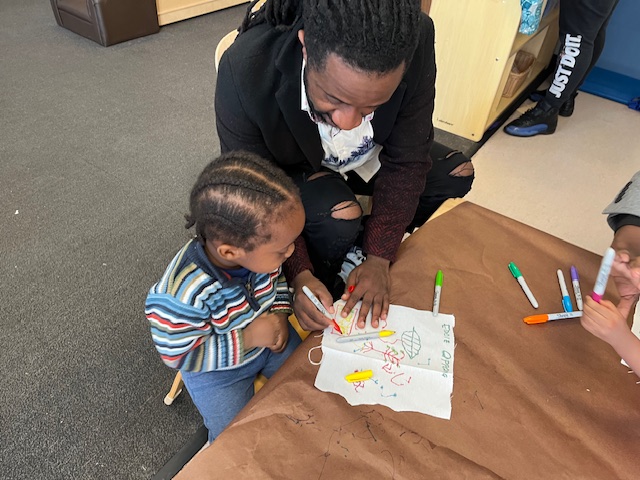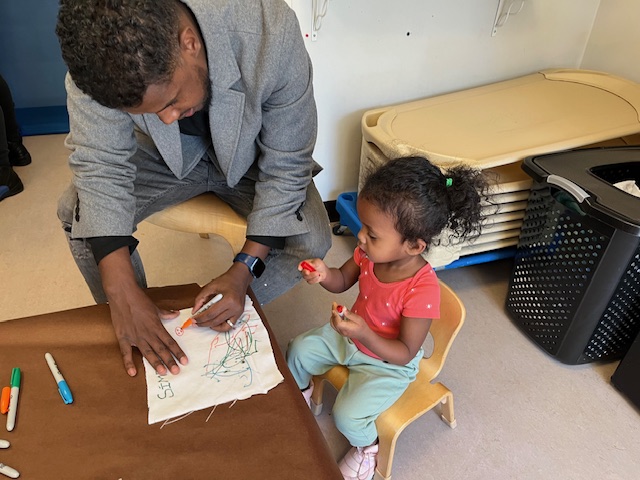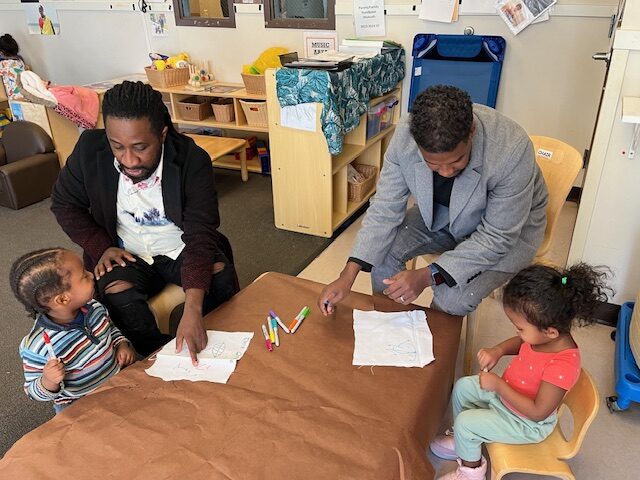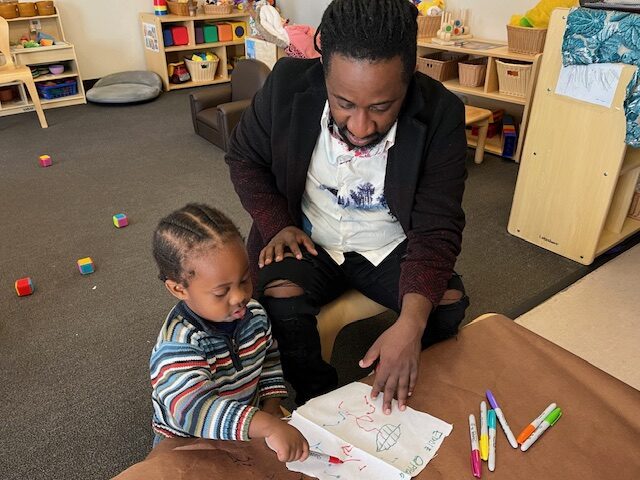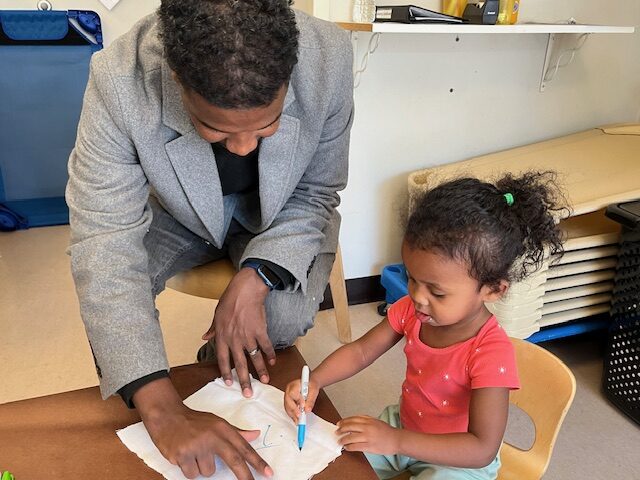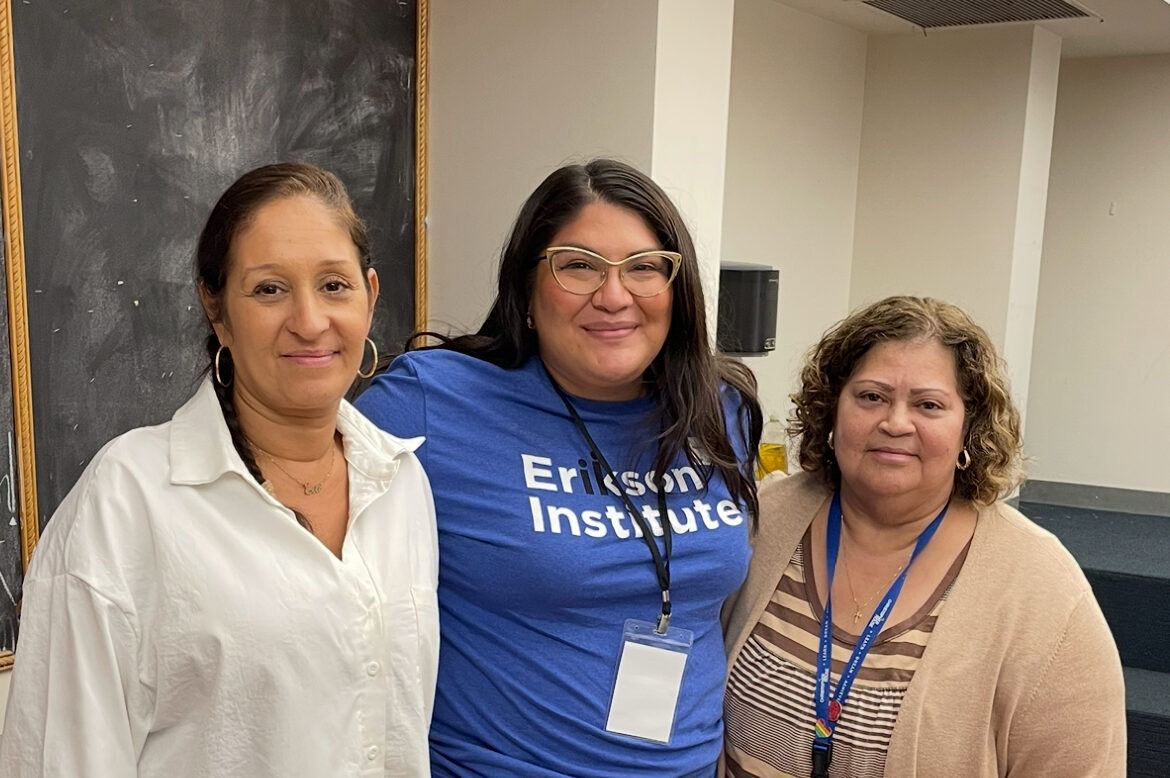Christopher House’s family of schools – Infant and Preschool, Elementary and Middle School, After School, and Parent school – implements a two-generation approach that highlights the importance of parent engagement for a scholar’s healthy development, both in and outside of the classroom. Teachers and Family Advocates work together to collaborate on different and creative ways to invite parents into the classroom, and Ms. Glenna’s toddler classroom is no exception!
Across Christopher House’s Uptown campus, fathers are joining their young scholars in the infant and toddler classrooms to help decorate fabric pieces that will be sewn together to form a large and vibrant quilt. Each individual piece has been created by a scholar and their father and their collaborative designs are representative of the unique and loving relationship that they share.
According to Ms. Glenna, a Mentor Teacher in Early Childhood, the goal of the art project was multifaceted; 1) to expose young scholars to the art medium of fabric, and 2) to invite fathers into their child’s classroom setting to creatively engage with their education in a fun and exciting way.
“Our hope was to create an activity that allows parents and children to enjoy an experience together in a school setting. It was truly a joy to see everyone, both fathers and the students, excited to create something together,” Glenna shared. “One of my students’ fathers could not join us for the activity because he is currently in Ethiopia. The family did not want their child to miss out on the experience, so my student’s mother came, propped up her phone, and facetimed him so he could be present for the project. It was really a special moment. Another father, while reflecting on his experience, even said to me, ‘It was one of my proudest moments as a parent.’”
Throughout the year, Glenna and the Family Support Services team support parent engagement in many ways, from bi-annual home visits during which teachers work with parents and caregivers to engage in at-home activities that support their child’s development, to inviting parents and caregivers into the classroom to facilitate lessons centered on identify, diversity, and culture.
“During the year, we explore identity, what it means, and why it should be celebrated. We encourage parents to come into the classroom to share about their family’s identity and culture through activities like sharing key words in their home languages and home experiences that relate to early childhood explorations. For example, if we are studying cars, the family might be asked to share a photo of their car or how they come to school. We are also inviting families to come to our classrooms during our outdoor play time and share stories or songs in their home language, or teach the children a simple game that they remember from their childhood. Parents are also encouraged to borrow books from school to read at home as another way of making home/school connections,” Glenna shared.
The earliest years of a child’s education, from birth to five years old, are the most formative and set the foundation for future learning and development. Parent engagement is essential during this time as it encourages children to find joy in learning, extends learning – academic and social emotional – beyond the classroom, and helps prepare young scholars to become lifelong learners.
“Parent engagement is critical at all ages, but especially Early Childhood. Providing activities for parents to do with their children can give insight to parents about developmentally appropriate experiences that they can do with their children,” Glenna shared. “For children, there is true joy in learning, exploring, and having classroom experiences with the most important people in their lives – their parents.”
